Key Gene in Tea Plants Identified to Enhance Mechanical Harvest Efficiency
Latest research by the Team of Tea Plant Germplasm Resource at the Tea Research Institute, Chinese Academy of Agricultural Sciences (TRI CAAS) has unveiled findings that promise to enhance mechanical harvesting efficiency in tea plantations. The study, recently published in Horticulture Research, identified the key gene for mechanical harvest-related droopy leaves in tea plants - a major challenge that leads to high rates of broken tea leaves during mechanical harvesting.
Tea,a vital non-alcoholic beverage plant,traditionally relies on manual plucking for highquality production. However, the tea industry now faces labor shortages and rising costs due to an aging workforce. Mechanical harvesting is becoming essential for development. Key traits such as internode length, leaf angle, and droopy leaves of new shoots influence suitability for mechanical harvesting. Despite this, the genetic and molecular mechanisms behind these traits are not well understood, hindering the breeding of tea varieties suitable for mechanical harvesting.
The research team identified CsEXL3 byemploying genome-wide association studies (GWAS)on 146 natural resources in National Tea Plant Germplasm Repository Hangzhou (NTPGRH), alongside transcriptome analysis of two extreme resources. Moreover, by using CsBES1.2 -silenced tea plant material, the study demonstrated that the brassinosteroid signaling component CsBES1.2 is involved in CsEXL3 -mediated droopy leaves and vascular bundle cell malformation.
Based on results of molecular experiments, such as CUT&TAG-based ChIP-qPCR, EMSA, and Y1H, it was shown that CsBES1.2 bound to the promoter region of CsEXL3 and therefore activating its expression in vivo and in vitro . CsEXL3 also inhibited lignin accumulation and the expression of lignin metabolism genes in tea leaf veins. This discoveryhighlighted CsEXL3 's role in relegating tea leave droopiness, partly through its transcriptional regulation by CsBES1.2 , which could be leveraged to improve the efficiencyof mechanical harvesting in tea plantations (see figure below).
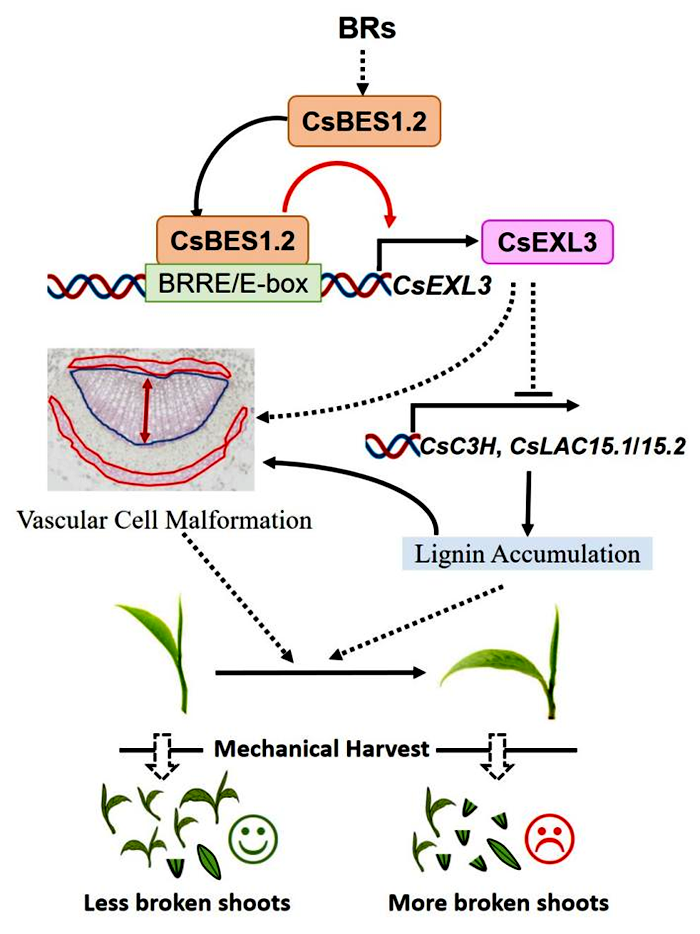
These findings have paved the way for genetic interventions aimed at reducing leaf droopiness and promise to improve the overall productivity and sustainability of the tea industry.
For more details, read the full article in Horticulture Research here: https://doi.org/10.1093/hr/uhae074
By Haoran Liu (hrliu@tricaas.com)
-
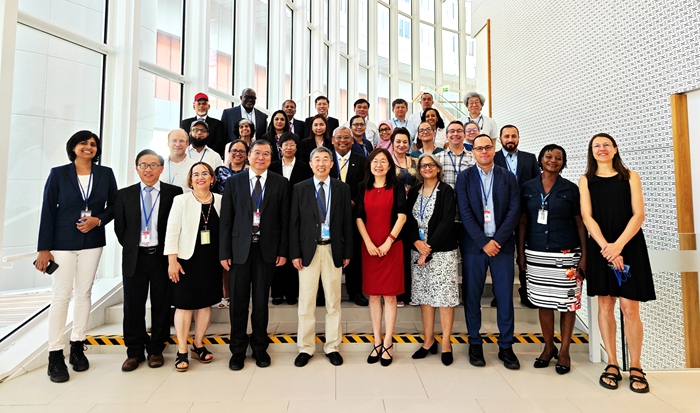 Oct 24, 2024Prof. Luxiang Liu Renewed His Term as the Chairman of the Mutation Breeding Network (MBN)
Oct 24, 2024Prof. Luxiang Liu Renewed His Term as the Chairman of the Mutation Breeding Network (MBN) -
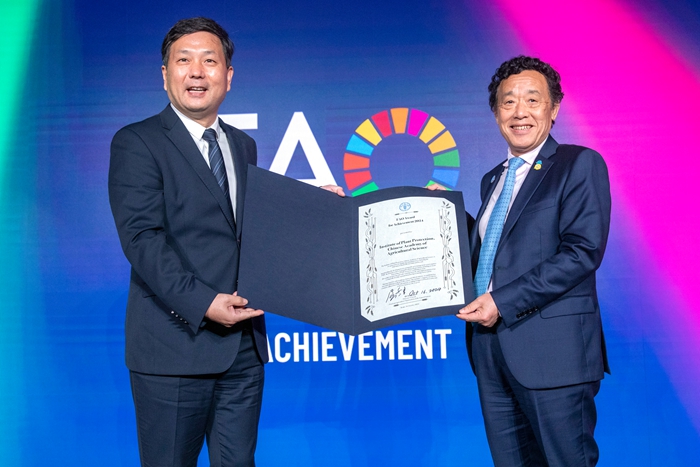 Oct 23, 2024IPPCAAS Wins the 2024 FAO Achievement Award
Oct 23, 2024IPPCAAS Wins the 2024 FAO Achievement Award -
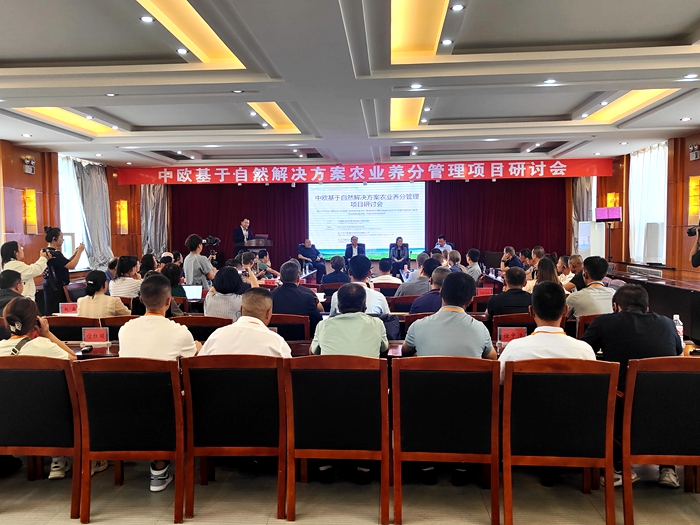 Oct 23, 2024ICS Hosted the Symposium of China-European Union Nature-based Solutions for Nutrient Management International Cooperation Program
Oct 23, 2024ICS Hosted the Symposium of China-European Union Nature-based Solutions for Nutrient Management International Cooperation Program -
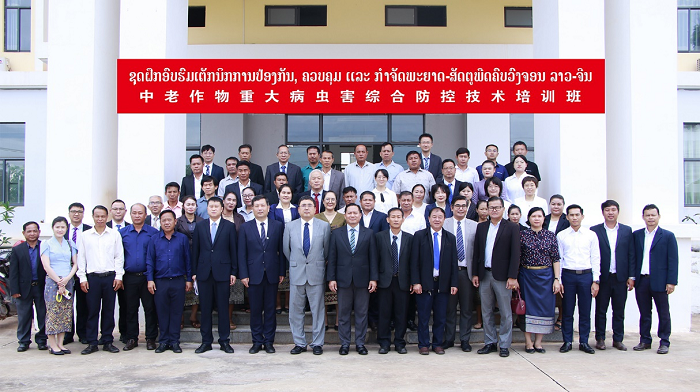 Sep 30, 2024China-Laos Training Workshop on Integrated Management of Major Crop Pests and Diseases Concludes Successfully in Laos
Sep 30, 2024China-Laos Training Workshop on Integrated Management of Major Crop Pests and Diseases Concludes Successfully in Laos -
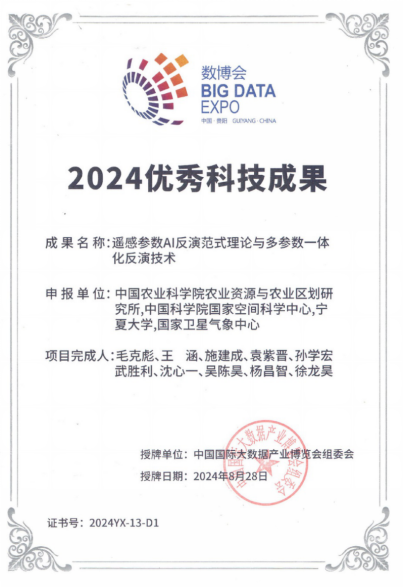 Sep 26, 2024IARRP's AI project research achievement wins the Excellence Award at the Big Data Expo
Sep 26, 2024IARRP's AI project research achievement wins the Excellence Award at the Big Data Expo
